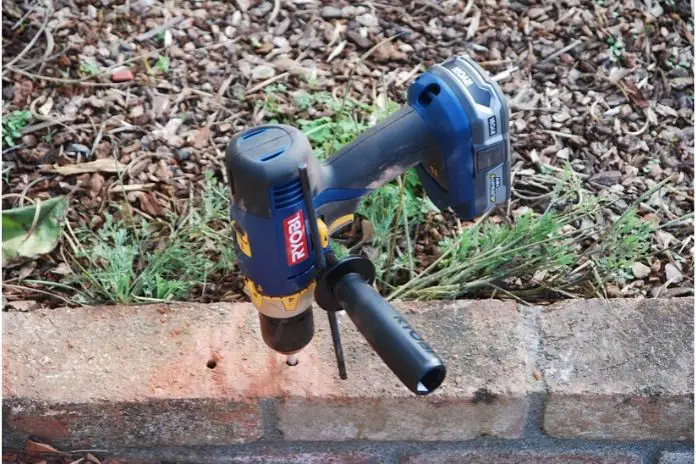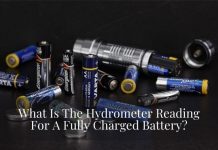
One of the best milestones in the battery manufacturing industry is the breakthrough of the lithium-ion cell technology. It was so revolutionary that it stirred various sectors, especially the cordless power tools manufacturing industry.
This gave manufacturers a setback because they already established their product lines powered by the old cell technology, but they also like to get a hold of the innovation. At the same time, most of the manufacturers are having a hard time what to do. Ryobi has got it all right because they are the only brand that had the old and the new integrated.
Will Ryobi lithium ion batteries work in older tools? YES! The lithium batteries of Ryobi will work in any of their old tools, but you have to keep in mind that you can’t charge them using the old NiCad battery chargers. In fact, the ONE+ batteries will make the older tools better in terms of performance and runtime.
Ryobi is the only brand that made it possible, where the new li-ion batteries are designed to work well with their old tools. What’s excellent about Ryobi is that they have a trademark for their system that almost all of there tools and batteries are interchangeable.
They have innovated a system that the new lithium batteries work perfectly fine with their exceptional selection of tools that were powered using the NiCad cells. However, there’s one thing they haven’t got. It’s the charging part. Their new lithium batteries can’t be charged using the old chargers for the NiCad batteries.
Considering the success they had by integrating lithium batteries and getting them to work with the old tools they produced when the cell technology wasn’t available yet is remarkable.
Perhaps you are a DIY enthusiast since you are reading this article. The kind of weekend warrior who invested in tools manufactured by one brand only, particularly Ryobi. If I am right, then I am also guessing that you have to spend a lot of money on Ryobi’s old tools and trying to figure if the new ONE+ batteries will work with them.
You already got the news then, but stay for a while and let me share some interesting information about these batteries.
Overview of Ryobi’s ONE+ Family of Tools and Batteries
As I mentioned earlier, Ryobi is the only cordless manufacturing company that successfully integrated the new lithium batteries with their old tool selection.
Apart from their success on that matter, they followed it up with their new cordless tool line, which is the famous ONE+ range of top-quality tools. This is a very popular range with the entire DIY community.
The ONE+ range is a family of 18-volt power tools and garden tools designed to be powered by a standard battery pack along with a standard charging system. This system is like a modular system that you can start with a specific tool with a battery and a charger.
And from there, you can expand your kit into a collection of tools as you can add them piece by piece, as well as battery packs.
What makes this ONE+ really great is that you can enjoy using five different tools with a single battery pack and a charger.
The fact that it allows you to use a standard battery pack for all of the tools under the line makes this line a more desirable option because it gives you the option of what to add to your collection. You can add an additional battery, tool, or charger.
Another thing that makes this line more desirable is that Ryobi made an effort to make sure that the new batteries will work just fine with their selection of old tools.
It gives the people who invested in a lot of the old tools use the ONE+ batteries with the ones they have, boosting the old tools’ performance and runtime.
An In-Depth and Detailed Look at Ryobi’s Line of Batteries
Since the dawn of the lithium battery technology, there has been a revolutionary shift in the cordless tools manufacturing industry, since the new cell innovation has been an exceptional milestone that opened a new world of opportunities.
When lithium technology emerged, many manufacturing companies had to make a lot of adjustments with their established product lines due to the new batteries.
Some of them had two product lines; some had to classify the old tools as obsolete to give way a for the new line. And there’s Ryobi, the one that had the innovation to bridge the old tools with the new batteries.
Due to this, their plenty of Ryobi batteries available in the market today, and choosing from this incredible selection is a daunting task. However, If you know and understand what each Ryobi battery has to offer, you can easily pick the best one for you.
I want you to join me as we take a look at the lineup of Ryobi batteries in my goal to help people like you. Join me, and together, let’s take a closer look at each Ryobi battery in the market today.
Check out this article: Ryobi Battery Warranty
The 4-Volt and 12-Volt Ryobi Batteries
Apart from the popular and comprehensive selection of power tools and garden tools, Ryobi also has a few small devices that include screwdrivers and their inspection camera. These tools are powered with their only 4-volt battery.
This is referred to as the 4V Tools line powered by the “Tek4” cell, which they claim to last long enough as 6000 AA batteries will last.
Tek4 is a lithium-ion battery engineered with a fade-free power technology that means that it is designed to deliver a constant amount of power from start until it dies. This battery has 2000 cycles representing its life expectancy, and you can get them for around $12 to $14, which is reasonable enough.
Ryobi also has a 12-Volt line of power tools. It was a pretty good selection of tools, but now the line only has a couple of drill models, and both of them are very difficult to find.
But anyway, this range of tools was powered by their 12-volt battery, which was considered one of the most effective cells in the 12-volt category. However, most of the tools under this 12-volt line was redesigned for the ONE+.
The 18V Batteries of Ryobi – The Most Extensive Line
Ryobi’s 18-volt batteries are the most popular; in fact, today’s cells in the market are under this classification. This is because the ONE+ line and the older 18V line are powered with these batteries.
However, a lot of people don’t know that the 18-volt batteries from Ryobi have three classifications, not two. The first one is the NiCad cell and then the lithium and lithium+ batteries.
These batteries are the most popular in Ryobi’s selection. One reason behind this is that most of the tools they produce are in the 18-volt category, and the ONE+ selection is in the 18-volt range.
On that note, it is safe to say that in the 18-volt range of batteries, Ryobi has three types, the 18-volt NiCad, lithium, and lithium+ batteries.
Let’s take a look deeper to understand each of these batteries better.
1. The 18-Volt NiCad Ryobi Batteries
Although they are seldomly used, the 18-volt Nickel Cadmium batteries of Ryobi are the first ones to power their cordless tool product line. It was the first best option for manufacturers to use power tools.
However, when lithium-ion technology emerged, the production of this type of battery significantly reduced. This is because the lithium technology offers better performance, longer service life, and tool runtime.
And the fact that Ryobi made it possible to use the lithium batteries for their tools powered with NiCad batteries. It lost its desirability if you must.
2. Lithium and Lithium+ Batteries
Today, most of the cordless tools use lithium batteries. This is because they offer more power, longer runtime, and they can last longer. However, due to the continuous progress in the evolution of batteries, Ryobi has released its patented lithium+ batteries that offer more compared to the usual lithium batteries.
This led them to have the standard lithium batteries and the lithium+ batteries considered an upgrade. This new piece of cell technology allowed Ryobi to produce a power cell that can offer more power and a longer lifespan than the standard lithium batteries.
You will notice that there are Ryobi tools with a description that says “lithium plus” compatible or something like that. It’s because the tool or device supports that battery structure that offers longer battery life and more output.
3. The HP Batteries Offered by Ryobi
Finally, in the 18-volt range of Ryobi, the last type and a kind that was never heard of were the HP batteries. The company claims that this kind of battery only works with their brushless tools, and they are supposedly designed to offer more power.
Ryobi also claimed that they are more balanced compared to others. However, there is no information that confirms these claims, but I thought including it in the guide is necessary.
Those are the batteries of Ryobi in the 18-volt range. Keep in mind that this is the range where the Ryobi tools are prevalent. Due to their interchangeability, they are more desirable compared to their counterparts.
If you are interested in learning more about the 18v Ryobi batteries, then Check my review of the best Ryobi Battery.
The 40-Volt Batteries of Ryobi
Ryobi also produces larger and heavy-duty tools. With that said, they also need to have a more substantial power source. That gave way to their 40-volt batteries, which has more to offer than the most common 18-volt cells.
This selection of Ryobi batteries is more expensive compared to the normal ones. They also provide more cycles, runtime, and power, but they also need longer charging time.
The 40-volt Ryobi batteries are engineered to have a capacity of around 1.5 Ah to 5 Ah. If you are to choose from the selection of 40-volt Ryobi battery, your choices will include models with a capacity of 5, 4, 3, 2.6, and 1.5 ampere-hours. However, the availability of these batteries is limited.
Final Thoughts
Thank you for taking the time to read this article. I hope it helped you clear the issue of the new Ryobi batteries. If we are to go back to the question earlier, the answer is Ryobi ONE+ batteries are compatible with the old tools.
They will work just fine with the old Ryobi power tools, but the new lithium batteries won’t be charged by the old chargers designed for the old NiCad batteries.





